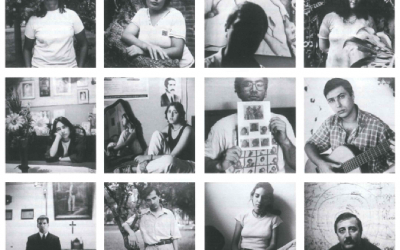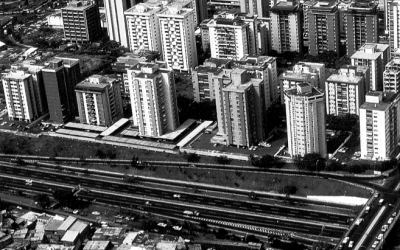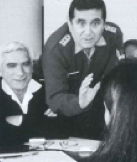Gender, Sexuality and Democracy
The post-dictatorial cultural transformations of Chile, Argentina, and Uruguay bring to the fore gender and sexuality as critical to discussion and reflection on the development of democracy. Family codes, abortion, divorce, adoption, inheritance laws, the role of the Church, sexual rights are all at stake. Awareness about issues of social tolerance and pluralism regarding women and sexual minorities in these societies is increasing, as reflected in recent studies on public opinion. Without dismissing the many problems and prejudices that are still standing, the apparent change in public opinion bears in important ways on the prospects for more truly participatory democratic cultures.
To facilitate such a discussion, Harvard Professors Bradley Epps and Luís E. Cárcamo-Huechante, with Raquel Olea and others from the Universidad de Santiago, are organizing a conference/workshop to take place in Santiago de Chile, from August 20-22, 2003. The event will bring together scholars, critics, writers, and performance artists from both the United States and Latin America (primarily Chile, but also Argentina, Uruguay, Bolivia, and Peru) who work on issues of gender and sexuality in the fields of literature, visual arts, and cultural critique.
“We aim at once to deepen and to expand the ongoing dialogue on the North/South locations of theoretical and critical discourses,” Epps said. “There are arguably few areas of inquiry as morally, politically, and culturally charged as that of gender and sexuality. Taboos, prejudices, and biases obtain in insistent yet variegated ways in both the North and the South. That said, the study of gender and sexuality tends to be informed by academic trends from metropolitan centers of power and knowledge, a phenomenon that doubtless merits examination.” For Cárcamo-Huechante, “contemporary literary and cultural production of the region constitutes a fascinating discursive arena in which new cultures of gender and sexuality are registered and imagined.”
Among the participants will be Sylvia Molloy, Raquel Olea, Diamela Eltit, Pedro Lemebel, Carmen Berenguer, Francine Masiello, Daniel Balderston, Diana Sorensen, Jean Franco, Nelly Richard, Olga Grau, Licia Fiol Matta, and Guadalupe Santa Cruz.
Fall 2002
Bradley Epps is a professor in the Department of Romance Languages and Literatures.
Related Articles
Democracy and the Military
One of the most dramatic developments in Latin America today is the unprecedented shift in the nature of politics since the late 1970s. At no time in the history of the Latin American republics…
Democracy and the City
We humans have the capacity to conceptualize ideas and elaborate thoughts, as well as to construct and fabricate both material and immaterial outcomes, based on those ideas and…
Corruption and Democracy
Despite more than ten years of democratic systems in Latin America, why is it that corruption hasn’t decreased in the region? In Peru, videotapes filmed at the National Intelligence…




